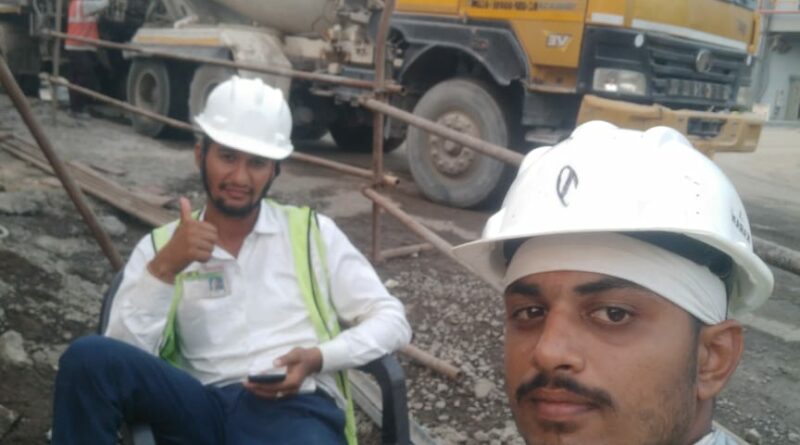Civil Engineering Top Interview Questions & Answers
Mainly Questions asked From these books are describe as following :
RCC– Grade of concrete, composition and uses
Different IS code
Basic tests on concrete and cement
Som- stress strain and it’s types,
Basic formula from bending and torsion
Soil-Tests of soil are most important.
oven drying to all the way upto SPT
sieve analysis,footing /foundation type and uses
soil classification,
Different types of Indian soils and location.
Why does the pressure increase under soil?
Ans.Soil pressure increases with depth due to the self-weight of the soil and due to loads imposed upon the soil.
The portion of a brick cut across the width is called?
Ans. Bat
What is the meaning of soil reinforcement?
Ans. Soil reinforcement is the act of improving soil strength to enable it support or carry more load
What are the duties and responsibilities of civil site engineer in road and building construction?
Ans-While on duty of supervision of building, you should ensure that the concrete mixing is according to the grade specified, Is work according the drawing. While supervision of road, you should ensure that the different layers of the road are laid in proper thickness.
What is called Jhama bricks…?
Ans– Over burnt irregular shape bricks are called Jhama bricks
What is the difference between capping beams and ground beams for piles?
Ans– Capping beams for piles aim at transferring loads from closely spaced columns or walls into a row of piles. On the other hand, ground beams are beams provided between adjacent pile caps and they perform as compression struts or ties in an attempt to prevent lateral displacement or buckling of piles under uneven distribution of loads on pile caps. Both of them have to be specially designed to cater for differential settlement of piles. Capping beam performs the same functions as pile caps. However, ground beams are structural elements to connect adjacent pile caps to improve the stability of foundation.
In soil compaction test, if a test result exceeds 100%, should engineers accept the result?
Ans– Soil compaction is the process of increasing the soil density by reducing the volume of air within the soil mass. Soil compaction depends mainly on the degree of compaction and the amount of water present for lubrication. In case the compaction test results indicate values exceeding 100%, it only means that the in-situ compaction is more than that being carried out in laboratories which is treated as the basic criterion for satisfactory degree of soil compaction. Therefore, the soil results are acceptable in case compaction test results are over 100%. However, excessive compaction poses a risk of fracturing granular soils resulting in the reduction of soil strength parameters.
What is called Dry Wall. ?
Ans– Interior covering material such as Gypsum board or plywood board which is applied on large sheets or panel’s is called Dry wall
What is the meaning of suspended slab?
Ans– Suspended slabs are above-ground level slabs which are not directly in contact with the earth. They are commonly used to create floors for the upper storeys of houses, but can also be sat on top of pre-constructed walls to form a ground floor.
What is the “DOKA” shuttering
Ans– Doka is the name of company who manufacture the shuttering material.
Its main products are H- beam which are used as primary and secondary members below sheeting plywood to take load from above and transfer it to temporary staging below.
What is Micro concrete ?
Ans– It’s a dry readymix concrete it is used for minor concrete repair works by adding required quantity of potable water.


Very helpful information thank you ????
wlcme keep learning